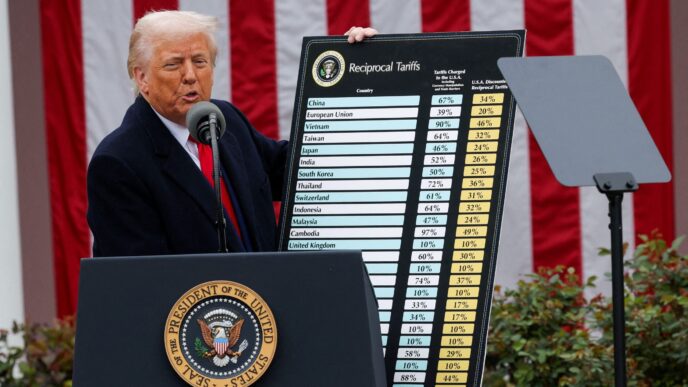Whistleblowing occurs when an individual within an organisation exposes information or activity deemed unethical, illegal, or contrary to established guidelines. Rather than accommodating or concealing such misconduct, the whistleblower chooses to alert internal or external parties – such as regulators, compliance bodies, or the media – who have the authority or influence to address it. This act often arises from a sense of moral responsibility; whistleblowers may feel compelled to protect stakeholders from harm, defend the organisation’s core values, or uphold societal interests. Despite these altruistic motives, however, whistleblowing can come with substantial personal risks, including professional backlash and social stigma, highlighting the courage required to speak up.
At its heart, whistleblowing stands for transparency and accountability – essential pillars of robust corporate governance. In an environment that encourages employees to report wrongdoings, illicit activities such as fraud, discrimination, or environmental harm are more likely to be uncovered and addressed swiftly. This proactive stance helps organisations avoid larger scandals, legal liabilities, and reputational damage. Conversely, a culture of silence, where whistleblowers feel unwelcome or unprotected, can allow misconduct to fester, ultimately undermining stakeholder trust and damaging the long-term sustainability of the business. By establishing effective whistleblower policies, corporate leaders demonstrate their commitment to ethical operations and signal that integrity is as critical to success as profit or market share..
The Ethical Foundations of Whistleblowing
At the centre of whistleblowing lies a conflict between personal loyalty to one’s employer and the larger obligation to uphold ethical standards. When employees witness activities that jeopardise public safety, contravene legal guidelines, or erode organisational values, they often face a profound moral dilemma: remain silent or come forward. Silence can be an instinctive choice, motivated by fear of reprisal or ostracism. Yet, it also allows unethical or harmful behaviours to persist, potentially harming co-workers, customers, shareholders, and the broader community. By choosing to speak up, whistleblowers affirm a commitment to the greater good – even when it may clash with short-term corporate interests or social pressures within the workplace.
While blowing the whistle carries uncertainties and personal risks, the cost of silence can be equally steep for both individuals and organisations. Unreported misconduct, whether it be financial irregularities, discriminatory practices, or safety violations, tends to grow more severe as time passes. This escalation can culminate in massive scandals, legal battles, and reputational crises that endanger an organisation’s viability. Internally, a culture that deters employees from voicing concerns fosters cynicism, corrodes trust among team members, and undermines morale. In the long run, this toxic environment stifles innovation, fuels turnover, and compromises organisational resilience. Thus, while many employees hesitate to step forward, the alternative – doing nothing – poses a significant ethical and practical threat to an organisation’s integrity and long-term success.
Whistleblower Policies: A Key Governance Tool
An effective whistleblower policy formalises how an organisation handles reports of misconduct, serving as a blueprint for both employees and leadership. Such a policy typically establishes clear reporting channels – hotlines, online portals, or third-party intermediaries – enabling staff to voice concerns confidentially and, if necessary, anonymously. It also outlines the steps an organisation will take to investigate allegations, detailing who is responsible for follow-up, how evidence is gathered, and how outcomes are communicated. Crucially, a robust policy includes explicit anti-retaliation clauses, ensuring that anyone who speaks up will not face demotion, harassment, or dismissal for bringing legitimate issues to light. Together, these features build confidence that whistleblowing is not merely permitted but actively supported by senior management.
By creating a formal framework for reporting, companies encourage early detection of potential hazards. This allows leaders to address problems before they devolve into full-blown crises. From a cultural standpoint, whistleblower protections reinforce a spirit of openness and mutual responsibility. Employees who feel secure about raising ethical red flags are more likely to trust their employers and remain engaged in their roles. For external stakeholders such as customers and investors, a publicly stated whistleblower policy communicates a company’s commitment to accountability and integrity, thereby enhancing the organisation’s reputation and credibility in the marketplace.
Many jurisdictions have enacted laws mandating whistleblower protections and outlining the consequences for retaliation. In the United States, statutes like the Sarbanes-Oxley Act and Dodd-Frank Wall Street Reform provide legal avenues for reporting wrongdoing and offer incentives or rewards for exposing certain financial misdeeds. The European Union’s Whistleblower Directive similarly obligates member states to establish secure channels and strict anti-retaliation measures. Compliance with these regulations not only helps organisations avoid legal penalties but also aligns them with best practices in governance. In an era when ethical lapses can instantly become global news, demonstrating adherence to legal standards for whistleblower protection can be a key differentiator, signalling to employees and the public alike that a company values honesty and responsible conduct.
Designing Effective Whistleblower Policies
- Clear Reporting Channels and Protections: A user-friendly whistleblower programme starts with accessible reporting mechanisms. This means offering multiple avenues – such as anonymous phone hotlines, secure online portals, and in-person meetings with designated officers – so employees can choose whichever option feels safest. Equally critical is explicitly assuring employees they will not face retaliation for making good-faith allegations. Anti-retaliation clauses must be unambiguous, with disciplinary consequences clearly spelled out for anyone who intimidates or penalises whistleblowers. By taking these steps, organisations communicate that reporting is not only tolerated but encouraged.
- Investigation Procedures and Follow-Up: Once a complaint is lodged, the process for examining it should be transparent, timely, and thorough. Strong governance dictates that an impartial, well-trained team or external auditor handle investigations, reducing conflicts of interest and suspicions of internal bias. Each report should be tracked through a systematic workflow, from initial assessment to final resolution, allowing oversight committees or senior leadership to gauge progress and ensure no case is neglected. Providing whistleblowers with periodic updates, where legally permissible, further boosts confidence in the system. Crucially, companies should document all findings and actions taken, creating a verifiable record that can be referenced in audits or legal proceedings.
- Monitoring and Review: A whistleblower policy is not a static document; it requires ongoing evaluation to remain effective in a changing business and regulatory climate. Regular reviews help identify trends in reported cases, emerging risk areas, or possible loopholes in the policy itself. Feedback from employees, compliance officers, and external stakeholders can guide revisions, ensuring the program adapts to new challenges and maintains clarity. By continually refining reporting channels, investigative procedures, and employee protections, organisations reinforce the message that ethical vigilance is a priority. This proactive stance helps prevent small issues from becoming systemic failures – and reassures employees that their concerns will always be taken seriously.
Fostering a Culture that Encourages Speaking Up
- Leadership Commitment: A whistleblower policy can’t flourish without steadfast support from top executives and the board. Leaders who visibly champion the importance of speaking up – through regular communications, training sessions, and personal example – create an environment where employees feel safe to voice concerns. When CEOs and senior managers actively address misconduct, praise ethical choices, and follow up on reported issues, they reinforce the notion that accountability matters at every level. Conversely, leaders who dismiss or downplay complaints send a harmful message that ethical considerations take a back seat to short-term gains.
- Employee Training and Awareness: Even the most comprehensive whistleblower policy can falter if employees aren’t aware of its existence or implications. Regular education – ranging from onboarding modules to periodic refresher courses – should clarify what constitutes reportable behaviour, outline reporting processes, and highlight anti-retaliation protections. Scenario-based learning or role-playing exercises can help employees grasp complex ethical dilemmas, reducing the fear factor around raising concerns. By emphasising both the practical steps and the ethical rationale for whistleblowing, organisations encourage employees to see themselves as responsible stewards of the company’s integrity.
- Recognition of Ethical Acts: Cultivating an open, transparent culture requires more than avoiding retaliation; it calls for celebrating the courage of those who choose to speak up. Acknowledging individuals – whether publicly or privately – who prevent harm through timely intervention sends a powerful message that ethical actions are valued at all levels. Such recognition can come in various forms: a note of appreciation from senior leadership, inclusion in performance evaluations, or even award ceremonies that highlight moral courage. While the specifics may vary, the underlying principle remains the same: by spotlighting employees who put integrity above convenience, organisations confirm that the whistleblower process isn’t just a legal or compliance formality – it’s a cornerstone of a principled and high-trust workplace.
Consequences of Weak or Non-existent Whistleblower Policies
- Legal and Financial Exposure: When organisations lack robust mechanisms for uncovering wrongdoing, they unwittingly allow misconduct – such as fraud, discrimination, or regulatory noncompliance – to fester unchecked. These hidden issues can eventually trigger lawsuits, hefty fines, or even criminal investigations. Regulators and courts typically look unfavourably on companies that fail to provide employees with safe avenues for reporting concerns, often interpreting such lapses as systemic failures of governance. Additionally, investors may become wary of organisations that appear indifferent to internal ethics breaches, leading to decreased stock valuations or difficulty raising capital. In short, a weak whistleblower framework can expose a company to tangible risks that extend well beyond the initial misconduct itself.
- Reputational Damage: In an era of real-time news cycles and active social media, information about unethical or illegal corporate behaviour can spread quickly once it surfaces – often magnified by public outrage. If whistleblowers are silenced, retaliated against, or dismissed as troublemakers, the story’s negative impact can multiply. Both consumers and potential business partners may lose confidence in an organisation that permits questionable practices to remain hidden. High-profile scandals or exposés can wipe out years of brand-building efforts, with the public perception shifting from respect to mistrust seemingly overnight. This reputational fallout can be difficult to reverse, especially if stakeholders suspect the company will continue to place profits ahead of honest conduct.
- Cultural Erosion: Internally, the absence of a clear whistleblower policy – or a disregard for one that does exist – sends a damaging signal to employees: ethical behaviour is not truly prioritised. Over time, silence becomes the norm, and individuals who might otherwise sound the alarm learn to suppress concerns to protect themselves. As a result, morale declines, cynicism rises, and teamwork suffers. Departments may become siloed, wary of sharing information that could escalate to senior management’s attention. This environment of fear or apathy undermines innovation and loyalty, as employees perceive that personal integrity might conflict with career advancement. Ultimately, without a protected channel for raising red flags, an organisation’s ethical fabric frays, weakening its long-term resilience and competitiveness.
Conclusion
Whistleblower policies are more than just legal safety nets; they serve as a tangible expression of a company’s commitment to ethical conduct and open communication. By offering clear, confidential reporting channels and robust anti-retaliation measures, organisations not only prevent small problems from escalating into major scandals but also signal that integrity stands at the core of their operations. In essence, strong whistleblower frameworks strengthen governance by embedding accountability, fostering transparency, and maintaining stakeholder trust.
Business leaders and boards should routinely assess the effectiveness of their whistleblower programs. Are reporting procedures easy to understand and widely publicised? Do employees trust that complaints will be investigated promptly and objectively? By identifying gaps in policy coverage, training, or follow-through, organisations can refine their programs to ensure that every employee feels empowered to voice concerns without fear. Engaging third-party experts, conducting anonymous surveys, or benchmarking against industry best practices can further enhance the credibility and impact of these policies.
As regulatory expectations evolve and social scrutiny intensifies, organisations that embrace whistleblower protections demonstrate resilience and foresight. Beyond meeting legal requirements, such companies benefit from early detection of risks, better alignment with stakeholders’ values, and a culture where ethical responsibility is championed rather than suppressed. Ultimately, recognising the “price of silence” and investing in safe environments for speaking up isn’t just about compliance or crisis avoidance – it’s a cornerstone of good corporate governance and sustainable success.













